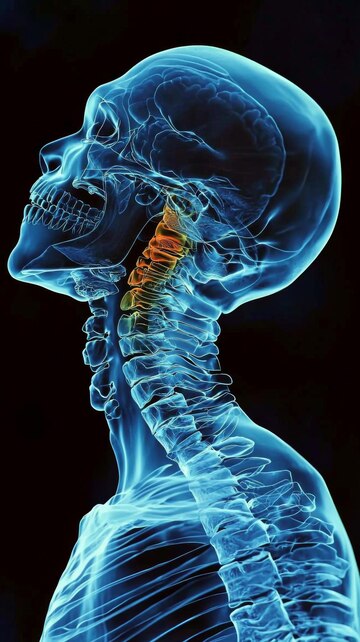Why does my head feel heavy?
.png?v=1669803083523)

Related products
What’s covered?
Why does my head feel heavy?
A long day usually leaves one with a heavy feeling in the head and a stiff neck. It is common to experience dizziness, faintness, or the sensation that water is floating inside your head, as well as these other common symptoms. A morning headache, however, can ruin your entire day before it even begins.
Does anyone you know or have contact with ever express the complaint, "My head feels heavy"? Your head may feel heavy for several reasons but pinpointing the exact cause can be challenging. It typically does not require immediate medical attention, though.

What Causes My Head to Feel Heavy?
It might be challenging to get through a day when your head is heavy. Concentration may be difficult, and even seemingly simple tasks may seem tiresome. There are several reasons why a head might be so heavy that it seems impossible to hold it upright or keep it together. These include,
Lack Of Sleep
A healthy lifestyle depends on receiving the proper amount of sleep. The body heals itself when a person sleeps, promoting healthy bodily and mental function. Lack of sleep lowers the body's pain tolerance, increasing the likelihood of headaches.
Stress and Anxiety
There is evidence that anxiety can lead to excessive worrying, irritability, and restlessness. Anxiety-related headaches may be a physical manifestation of the mental suffering you are going through. Because you feel pressure and a tight band around your head, these are also known as tension headaches.
Symptoms of Tension Headaches include;
-
Light to moderate aching or a dull ache
-
The squeezing of your eyes
-
A band-like feeling of pressure around your skull
-
Neck and shoulder muscles, stiffness, scalp sensitivity
Although tension headaches may get better quickly, they can linger for several hours or even days. They sometimes are not severe enough to interfere with your day-to-day activities, yet they can still be detrimental to your quality of life.
Sinusitis
Inflammation in the nasal cavities of the face is known as sinusitis. The mucous membranes of the nose and nasal sinuses are sensitive to pain. Sinus infections bring on sinus headaches. A sinus infection can be brought on by anything that causes mucus to collect in the sinuses.
What factors lead to sinus infections?
A virus, bacteria, or fungus that enlarges and plugs the sinuses is the source of the sinus infection. Among a few causes are:
-
Seasonal allergies
-
Nasal polyps
-
A weak immune system
How do sinus headaches feel?
Face pain is a symptom of sinus headaches. When you move your head quickly, pain frequently becomes worse.
Alcohol-induced hangover
After consuming alcohol, a lot of people claim to get headaches. It is a result of alcohol's direct impact on and irritation of the brain's meninges, which results in intracranial pain. Additionally, alcohol induces dehydration, which is followed by a heavy head.
Brain Tumour
A brain tumour may not show any symptoms while it is first developing. It can only start to produce headaches if it gets big enough to exert pressure on the brain or the nerves in the brain.
How to distinguish brain tumour headache from other
There are some notable distinctions between the characteristics of a headache caused by a brain tumour and one caused by tension or a migraine.
For instance, a brain tumour may be detected if a person frequently wakes up with a headache. But remember that other illnesses, such as obstructive sleep apnoea or a hangover, can also result in morning headaches.
Take note, though, if your headaches suddenly become more severe, different from what they used to be, or more frequent. These could be signs of a brain tumour. Similarly, if you do not often experience headaches but start getting regular, excruciating headaches along with other symptoms, visit a doctor immediately.
Balance Disorders
If you experience unsteadiness or vertigo, you may have a balance disorder. You might experience a sense of movement, spinning, or hovering whether you're standing, sitting, or lying down. You can feel as if you are about to topple over when walking.
How do imbalance issues result in a heavy head?
Your body's various organs and structures, particularly your eyes, ears, and the muscles and touch receptors in your legs, provide messages to your brain that help you feel your balance. The vestibular system is the portion of the ear that aids in balance. Balance issues are the first symptom of damage to these structures, followed by a heavy head.
Poor Posture
Heavy heads and poor posture are related. In other words, the position you choose when standing and sitting affects both the intensity and frequency of your headaches.
Our heads seem to be moving forward continually in the world of texting, typing, and other head-down activities, which might cause migraines or headaches.
There is excellent news if you're sick of experiencing tightness, dullness, pressure in your forehead, squeezing, or stiffness at the back of your head or neck. With the right posture, you might be able to lessen your headaches' frequency and intensity.
How to treat heaviness in the head
Mild to moderate headaches can be treated with many conventional therapies and medications.
Tips to relieve headaches on your own
-
Cold Pack
Apply an ice pack to your forehead if you have a headache. For 15 minutes, leave the compress on your head. Blood vessel constriction caused by the cold can lessen pain's neurotransmission to the brain.
-
Hydration
Take in a lot of liquids. A headache might develop or become worse due to dehydration.
-
Caffeine Intake
Have some caffeine-containing chocolate, coffee, or tea. It can provide relief by reducing inflammation.
Medications
Non-steroidal anti-inflammatory drugs (NSAIDs) are a group of medications that can be used to treat headaches. This class of drugs will block the production and secretion of prostaglandins, which are the chemicals that lead to headaches, by their actions on blood vessels. Prostaglandins will no longer trigger the resulting pain once the channel is blocked.
Paracetamol and other over-the-counter painkillers can also be taken on a doctor's prescription. Find paracetamol on the Welzo store here.
Conclusion:
There is a wide range of possible reasons why your head can be feeling heavy. From minor ailments like a headache or sinus infection to more serious ones like a concussion or brain tumour, they can differ in severity. A heavy head is usually not a major problem. However, in a few instances, head heaviness might indicate a more serious condition that requires a doctor's evaluation.




























 Rated Excellent by 26,523+ Reviews
Rated Excellent by 26,523+ Reviews